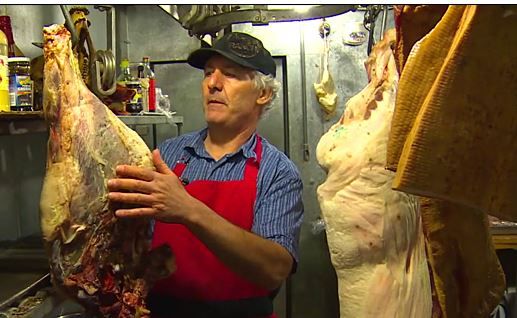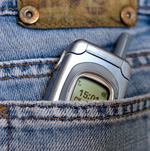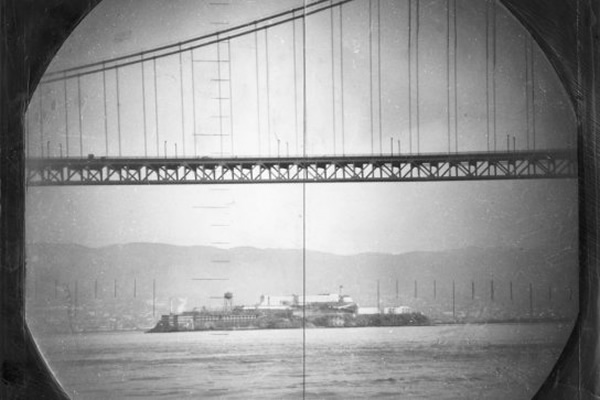
Where to be ...
Carolina Naturally is read in 191 countries around the world daily.
WALLACE: Senator Durbin, I want to pick up on this culture. Starting in 2010, a number of Democratic senators — Democrat senators — sent letters to the IRS asking them to investigate various groups that they said were seeking tax-exempt status, but were improperly involved in politics. Now, in October 2010, you sent a letter to the IRS in which you talked about going after groups.Sen. Durbin did a great job laying it out. Karl Rove deserved, and continues to deserve IRS scrutiny because his dark money Crossroads groups are violating the rules for tax exempt organizations. Rove has regularly boasted about how much money Crossroads is spending to defeat Democrats, when tax exempt nonprofits aren’t supposed to be engaging in partisan political activity.
But you only mentioned one specifically by name and I want to put this up from the October 2010 letter that you wrote to the IRS, “One organization whose activities appear to be inconsistent with the tax status is Crossroads GPS.” That, of course, a group co-founded by Karl Rove.
Question, Senator — why single out Crossroads when you did not mention one single liberal group, and there were a bunch that were applying for that exempt-status exactly that point, with the name “progress” in their names?
DURBIN: I can just tell you flat out why I did it, because that Crossroads organization was boasting about the money they were raising as a 501(c)(4).
Let’s get back to the basics. Citizens United really unleashed hundreds, if not thousands, of organizations seeking tax-exempt statuses to play in political campaigns. The law we wrote as Congress said that they had to exclusively be engaged in social welfare and not politics and campaigning.
And so, here is the IRS trying to decide whether or not these organizations really comply with the law. Crossroads was exhibit A. They were boastful about how much the money they were going to raise and beat Democrats.
WALLACE: Senator Durbin, just briefly, why not, because we’re now in the mess that we are in because of political targeting, why not send a letter that says, go after any group of any political persuasion? Why not refrain from mentioning a wingnut group and never mentioned any liberal groups?
DURBIN: Well, I explained that once, Chris. But, you know, Karl Rove was making — he’s boasting, saying he’s going to raise so much money, millions of dollars. And I knew that if they went into investigate this group, every other group would be put on notice.
I’ve also said from the beginning, Chris, there’s no basis for targeting within the IRS, what we basically need to say is all groups need to have the law applied to them equally. And in this situation, Karl Rove was front and center and proud of it. And that’s why I mentioned his organization.
Some officials are now declining to take calls from certain reporters, concerned that any contact may lead to investigation. Some complain of being taken from their offices to endure uncomfortable questioning. And the government officials typically must pay for lawyers themselves, unlike reporters for large news organizations whose companies provide legal representation.
The price tag is estimated by Linda J. Bilmes of the Harvard Kennedy School to total somewhere between four and six trillion dollars. The decision to finance the wars almost entirely through borrowing has already added more than 1.3 trillion dollars to the national debt. And then there’s the direct human cost: more than six thousand soldiers have died, and up to another six thousand contractors.And then there's the number which is the focus of this piece: $44.6 billion, the total estimated lost economic value of the American war dead.

Additionally, software can be written that will allow only authorized users to open files containing valuable information. If an unauthorized person accesses the information, a range of actions might then occur. For example, the file could be rendered inaccessible and the unauthorized user’s computer could be locked down, with instructions on how to contact law enforcement to get the password needed to unlock the account. Such measures do not violate existing laws on the use of the Internet, yet they serve to blunt attacks and stabilize a cyber incident to provide both time and evidence for law enforcement to become involved.It gets better:
While not currently permitted under U.S. law, there are increasing calls for creating a more permissive environment for active network defense that allows companies not only to stabilize a situation but to take further steps, including actively retrieving stolen information, altering it within the intruder’s networks, or even destroying the information within an unauthorized network. Additional measures go further, including photographing the hacker using his own system’s camera, implanting malware in the hacker’s network, or even physically disabling or destroying the hacker’s own computer or network.


Cash-for-cheese sounds more like a joke that a serious financial agreement, but in some regions of Italy it’s a reality. The famous Parmesan is so precious that some banks are willing to keep the cheese as collateral against loans to local producers.
The Credito Emiliano bank has hundreds of branches and thousands of employees around central and northern Italy. Its central offices look like those of any other banking institution, with cameras watching every angle, security doors to lock down the place and even a big vault in the back. Only you’re not going to find too many diamonds or hard cash stored in there. Instead, there are hundreds of thousands of Parmigiano-Reggiano cheese wheels, neatly placed on giant shelves. The bank takes the Parmesan from local producers in exchange for a cheap loan, and charges a 3% interest as well as a fee for looking after the cheese and making sure it matures properly in the air-conditioned, humidified vault. It might seem strange, but Credito Emiliano treats Parmigiano-Reggiano like other banks do gold. And for good reason, as the mountains of cheese locked away in its secured vault are worth around $200 million.

The shop sold four pigs in various forms earlier this year, including with pot-infused bacon. The meat "tasted savory," von Schneidau said, adding that he has a small amount leftover that he's using to make into prosciutto.Funny, I thought they would describe the meat as being more mellow.


 Rule
one of stealing a car is: never let your cell phone butt-dial the cops.
Here's what happened when a pair of hapless criminals's butt-dialing helped
the cops crack the case:
Rule
one of stealing a car is: never let your cell phone butt-dial the cops.
Here's what happened when a pair of hapless criminals's butt-dialing helped
the cops crack the case:The two would be crooks were about to break into a car in Fresno, California when one of the men called 911 from his phone in his pocket.
Nathan Teklemariam and Carson Rinehart were about to break into a car when they dialed 911. The dispatcher answered and heard a conversation. Here's some of what he heard:
"I just want to smoke weed so bad right now" and "give me the bolt and give me the hammer just in case," all before hearing glass breaking in the background. [..]
as the officer searched the car, he found property lifted from the vehicle. That's when the officer finally let them in on their mistake.
"We really called 911?" one of the suspects said. "Damn."










